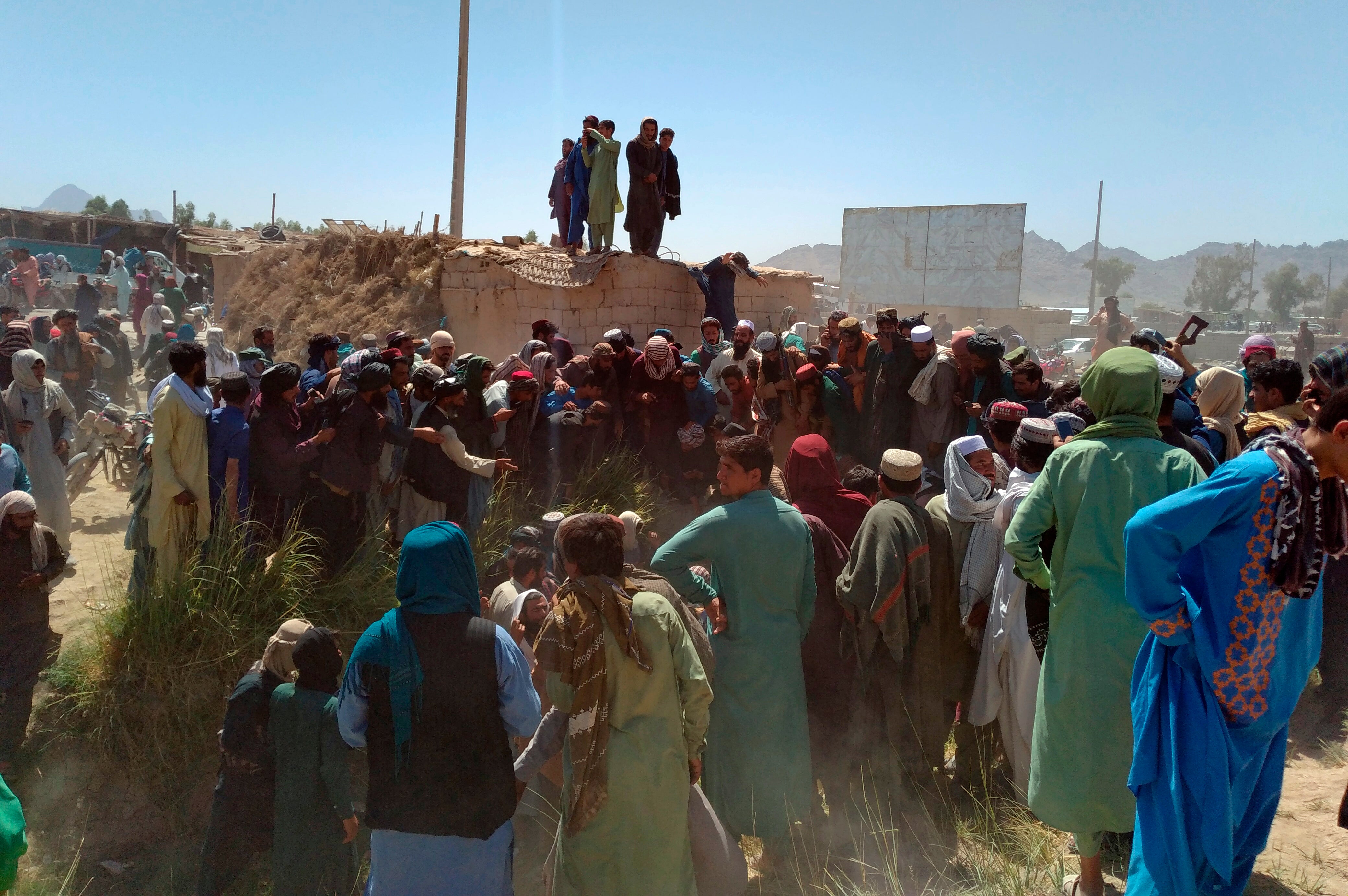Germany, Netherlands suspend deportations to Afghanistan
Germany and the Netherlands have suspended deportations of migrants to Afghanistan due to the tense security situation in the country

Your support helps us to tell the story
From reproductive rights to climate change to Big Tech, The Independent is on the ground when the story is developing. Whether it's investigating the financials of Elon Musk's pro-Trump PAC or producing our latest documentary, 'The A Word', which shines a light on the American women fighting for reproductive rights, we know how important it is to parse out the facts from the messaging.
At such a critical moment in US history, we need reporters on the ground. Your donation allows us to keep sending journalists to speak to both sides of the story.
The Independent is trusted by Americans across the entire political spectrum. And unlike many other quality news outlets, we choose not to lock Americans out of our reporting and analysis with paywalls. We believe quality journalism should be available to everyone, paid for by those who can afford it.
Your support makes all the difference.Germany and the Netherlands have suspended any deportations of migrants to Afghanistan due to the tense security situation as Taliban insurgents make sweeping gains in the Central Asian country.
German Interior Minister Horst Seehofer ordered the suspension “for the time being,” spokesman Steve Alter said Wednesday. Earlier, Alter said that almost 30,000 Afghans in Germany are currently required to leave the country.
In the Netherlands, Justice State Secretary Ankie Broekers-Knol wrote to parliament that changes in Afghanistan were so unpredictable “that a decision was taken to impose a departure moratorium.”
She said the decision was justified by “the worsening situation and the possibility to wait for a decision until there is a more stable assessment of the situation.” She said no forced deportations to Afghanistan had been immediately planned ahead of her decision.
In Germany, six Afghan citizens were scheduled for deportation last week but the process was postponed, the German news agency dpa reported.
Germany’s Foreign Ministry is updating its new asylum evaluation report, which usually provides the main criteria for deciding whether rejected asylum-seekers can be deported. Since 2016, more than 1,000 Afghan migrants who unsuccessfully applied for asylum in Germany have been sent back to their home country, according to dpa.
Last week, six other European Union member countries argued that the forced deportation of migrants back to Afghanistan must continue despite the government in Kabul suspending such “non-voluntary returns” for three months.
In a letter dated Aug. 5, the interior ministers of Austria, Belgium, Denmark, Germany, Greece and the Netherlands urged the EU’s executive branch to “intensify talks” with the Afghan government to ensure that the deportations of refugees would continue.
“Stopping returns sends the wrong signal and is likely to motivate even more Afghan citizens to leave their home for the EU,” the ministers wrote to the European Commission.
The commission confirmed Tuesday that it had received the letter and would reply when ready. Asked whether Afghanistan was a safe place to forcibly send people, spokesman Adalbert Jahnz said: “It is up to each (EU) member state to make an individual assessment of whether a return is possible.”
Emboldened by the Biden administration’s decision to pull American troops out of Afghanistan and end NATO’s troop training mission in Afghanistan, Taliban insurgents have captured five out of the country’s 34 provincial capitals in less than a week.
Afghan security forces, which have been backed, trained and financed with billions of dollars in a 20-year-long Western military effort that included many EU countries, appear unable to cope with the Taliban offensive.
More than 1 million migrants came to Germany in 2015 looking for asylum, most of them from countries ravaged by civil wars such as Syria, Afghanistan and Iraq.
____
Raf Casert contributed from Brussels.